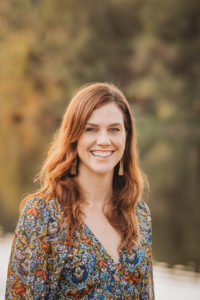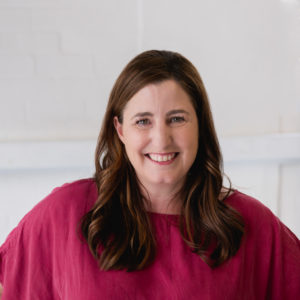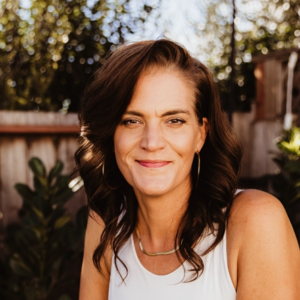Maui Delegation
February 3 - 9, 2024

Adrienne Heinz, Ph.D.
[email protected]
www.dradrienneheinz.com
919.630.6847 (cell)
Tubbs (2017), Kincade (2019), Walbridge (2020)
Clinical Research Scientist, VA National Center for PTSD and Stanford University School of Medicine
Subject Matter Expertise: Traumatic stress, Digital mental health, climate change grief, disaster recovery, social entrepreneurship
Adrienne Heinz, Ph.D. is a clinical research psychologist at the VA National Center for PTSD, Public Digital Health Innovation Program and Stanford University. Dr. Heinz’s family and community in Healdsburg, California, have been repeatedly impacted by wildfire disasters and she cares deeply about raising awareness of the intersections of climate change, disaster, and mental health. Her research on trauma and resilience complements, informs, and inspires her clinical practice resulting in over 50 peer-reviewed publications. In her role, she creates free, accessible, science-based mental health apps to address trauma and related struggles. Dr. Heinz also serves as a consultant advising on cultivation of public-private partnerships to expedite healthcare innovation in trauma-impacted communities.

Jolie Wills
[email protected]
www.hummingly.co
720.425.2909 (cell)
Christchurch Earthquakes (2010 & 2011)
Msc. Cognitive Psyc
Subject Matter Expertise: Community Recovery, Supporting the Supporters, Recovery Leadership, Recovery programing (mental health and wellbeing)
Jolie is a cognitive scientist specializing in disaster recovery. As a survivor of the Christchurch earthquakes, Jolie has lived disaster recovery firsthand with her family and community. Jolie led a large-scale recovery program in support of the many communities devastated by the Christchurch earthquakes – work that has shaped recovery programming globally, always in a way that is locally relevant. Jolie has spent the last decade learning from disasters and packaging the learning up into practical tools and guidance to make it that bit easier for communities hit by disaster and for those working to support their recovery. Jolie has been awarded a Winston Churchill Fellowship and an Edmund Hillary Fellowship for her global contribution to supporting communities affected by disaster. She is co-author of Leading in Disaster Recovery: A Companion through the Chaos
 Jennifer Gray Thompson, MPA
Jennifer Gray Thompson, MPA
[email protected]
707.953.6034 (cell)
North Bay Fires (2017) Kincaid + Walbridge Fires (2019), Glass Fire (2020)
Founder & CEO, After the Fire USA; Executive Director, Rebuild NorthBay Foundation; Bipartisan Policy Center Disaster Response Reform Task Force
Subject Matter Expertise: Community Recovery, Long-Term, Federal Advocacy, Wildfire Leadership Network, Frontline Community Support, Local + Federal Government; Public Policy
"We advocate, educate, collaborate to address the Era of Megafire."
Named as one of Forbes "50 over 50" IMPACT Leaders in 2022, Jennifer Gray Thompson has helmed Rebuild North Bay Foundation since January of 2018, right after the North Bay megafire of October of 2017. Gray Thompson took a fledging organization and made it into a powerhouse national nonprofit that is the recognized national leader in recovery from megafires. She serves on the Bipartisan Policy Center Disaster Response Reform Task Force making recommendations to Congress in 2024/25 on reforms.
Jennifer is a lifelong resident of Sonoma Valley in Northern California. After teaching high school for 10 years, Jennifer earned a master’s degree in Public Administration from University of Southern California’s Price School of Public Policy. Post-graduate school, Jennifer worked for the Sonoma County Board of Supervisors. After the devastating fires in the North Bay of San Francisco in October 2017, she accepted a position as Executive Director of the newly formed 501c3 nonprofit Rebuild NorthBay Foundation (RNBF), an organization dedicated to helping the region rebuild better, greener, safer, and faster.
Since "paying it forward" in the Camp Fire and Woolsey Fires of 2018, Jennifer has led delegations to 18 counties, again paying lessons forward to virtually every wildfire affected community in the American West. In response to the growing crisis, RNBF created After the Fire USA to help solve the issue of megafire, a climate-based disaster affecting millions of people globally. This initiative was born of practice in communities for several years and the increasing threat of the Era of Megafire.
As CEO of this organization, Jennifer has designed an effective and innovative Wildfire Leadership Network, implemented a Survivor Deployment Model for newly fire-affected communities, provided immersive and actionable After Action Reports to national organizations and communities, advocated with wildfire survivor leaders for sane and smart federal policies, and hosts a national summit on Wildfire Leadership annually in Sonoma, drawing upon leaders from frontline communities as well as the public, nonprofit, and private sectors.
Jennifer is committed to equitable and resilient recoveries for every community, regardless of their ability to pay. ATF USA (501c3) does not charge communities for their services. After the Fire USA is committed to supporting locally led and designed recoveries.
ATF USA has fostered a thriving resiliency program in partnership with CalFire and USDA/RCPP under the Parent Organization, Rebuild North Bay Foundation, that is the lead agency for nearly $10M in state and federal grants for wildlands fuel mitigation programs. These innovative programs are now being transferred to wildland management organizations, having proved the model and innovated to address a serious gap in service delivery.
Jennifer is nationally recognized as a leader in the space of wildfire and has presented at several national conferences at the US Chamber of Commerce Foundation, HAC, Fannie Mae, Brownsfield, Smart Cities, FEMA, and more.
Jennifer is the creator and host of the “How to Disaster” podcast, which highlights proven and effective leaders with great ideas in the space of disaster.
Resources
Talk Story: How one community approached collective healing after a disastrous wildfire
List of programs for supporting mental health and wellbeing after disaster
Supporting evidence for Australia's national disaster mental health framework
School Resources
Resources for kids after disaster
School based disaster psychosocial interventions
US Department of Education: Immediate aid to restart school operations
General education provisions act assurances
Individual LEA or nonpublic school allowance expenditures
2019 Restart grant initial LEA needs assessment ACS
RESTART Frequently Asked Questions
KEYNOTE Rising from the ashes healing the wounds of disaster and managing climate grief Ad (youtube.com) Dr. Adrienne Heinz
